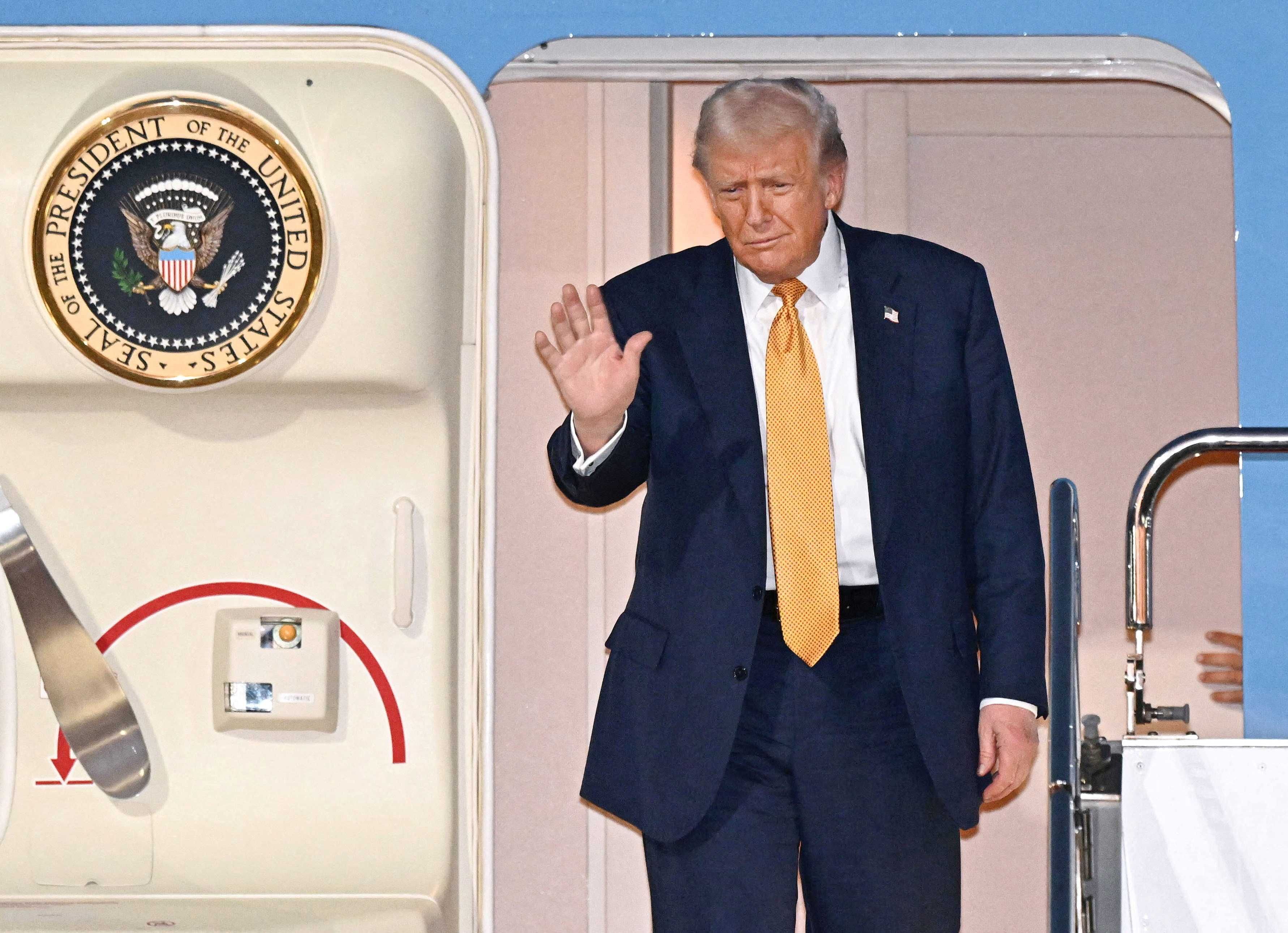U.S. President Donald Trump waves upon his arrival at Haneda airport in Tokyo, Japan, in this photo released by Kyodo October 27, 2025. Mandatory credit Kyodo/via REUTERS
During the 19th Century, the term "gunboat diplomacy" was invented to describe countries throwing their weight around militarily. And the term was used as an insult well into the 20th Century, from the Soviet Union's invasion of Afghanistan in 1979 to the CIA's role in the overthrow of democratic socialist Salvador Allende in Chile in 1973.
Greatly influenced by Patrick Buchanan, President Donald Trump's America First approach to foreign policy is, in many respects, a major departure from the hawkish conservatism of GOP Presidents Ronald Reagan, George W. Bush and George H.W. Bush and the hawkish liberalism of Democratic Presidents Lyndon B. Johnson and Franklin Delano Roosevelt. But that doesn't mean that Trump is a pacifist.
The New York Times' Ben Rhodes, in his October 26 column, draws a parallel between Trump's foreign and domestic policies — and that parallel is a thirst for "power."
"For Mr. Trump," Rhodes writes, "the common thread weaving together so much of what he does — at home and abroad — is power. Whether he is seeking a ceasefire in Gaza or Ukraine, bombing boats off the coast of Venezuela or deploying troops to American cities, the desired result is his personal aggrandizement and the empowerment of his presidency. When he pursues peace, it is personalized — a deal made with other strongmen rarely addresses underlying causes of conflict. When he makes war, it is also personalized — there is no expectation, for instance, that Congress must authorize his actions."
Rhodes never uses the term "gunboat diplomacy" in his column, but the concept is very much a part of his analysis.
Trump, according to Rhodes, claims to be the "peace president" yet conducts himself like a bully both in the U.S. and abroad.
"This geopolitics of might-makes-right suits Mr. Trump's ambitions," Rhodes argues. "While he declares himself the 'peace president,' his newly rebranded Department of War is blowing boats out of the water in the Caribbean with no domestic or legal basis. He has claimed that this killing is part of a counternarcotics strategy, although Venezuela is not a leading source of illegal drugs coming into the United States. The real objective appears to be regime change. Already, Mr. Trump has labeled Venezuela's dictatorial leader, Nicolás Maduro, a narcotrafficker, authorized CIA covert operations in the country, and deployed considerable military might near its borders."
Rhodes adds, "As a major oil producer with a left-wing government and right-wing opposition calling for American intervention, Venezuela makes a ripe target for Mr. Trump — so long as he ignores the sordid and counterproductive history of America's recent regime change wars or the record of CIA-sponsored coups in Latin America…. Over the past several months, events overseas have served as pretexts for power grabs within the United States. The Trump Administration has used the war in Gaza as an excuse to crush free speech for pro-Palestinian protesters and compel certain universities to submit to federal dictates."
Ben Rhodes' full New York Times column is available at this link (subscription required).
From Your Site Articles
- 'Widespread burnout': ICE agents express 'frustration' over Trump's 'unrealistic' demands ›
- 'He has it wrong': Former CIA officer slams Trump official over new Venezuela attack ›
- 'Self-defeating': Expert says Trump 'hasn't got a clue what he's doing' in Venezuela ›
- Trump press secretary shares article calling for Venezuela regime change - Alternet.org ›
- How Trump's bullying crashed and burned last week — big time - Alternet.org ›
Related Articles Around the Web
